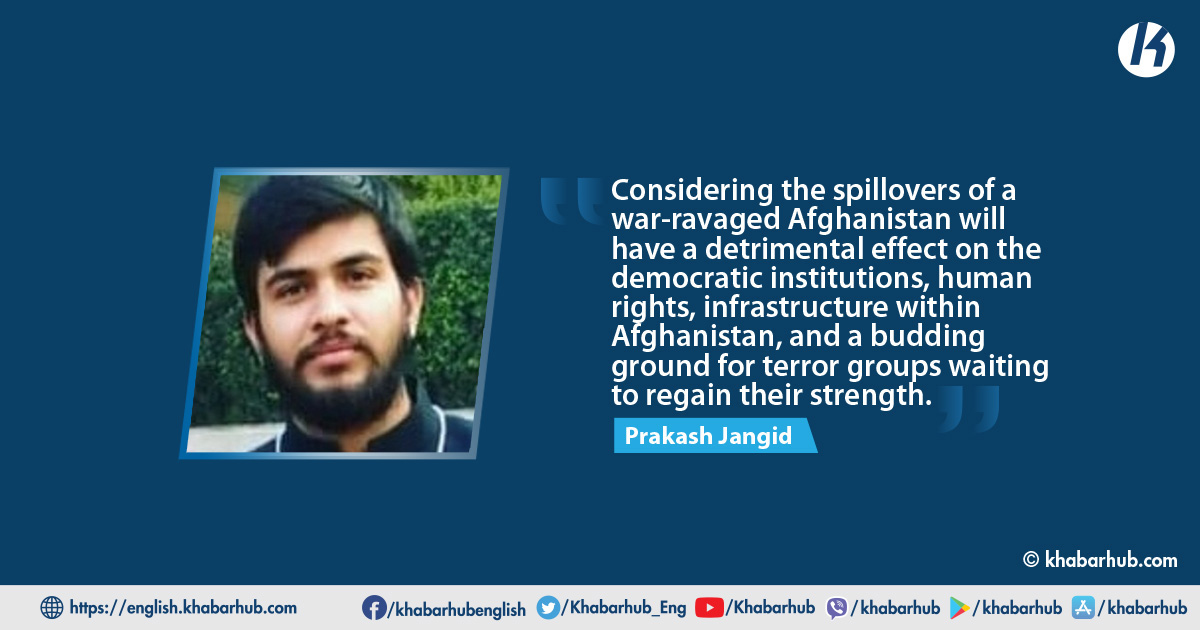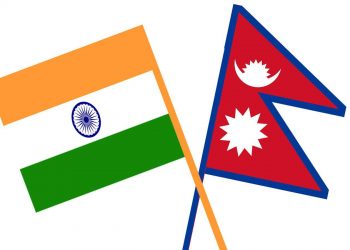With the nearing of the US withdrawal deadline – New Delhi is losing no time in engaging with different stakeholders capable of playing a formidable role in the future of Afghanistan.
From Indian officials ‘quiet talk’ with the Taliban leadership at Doha, the meeting between External Affairs Minister (EAM) S. Jaishankar and his Russian counterpart Sergey Lavrov to the recent SCO meeting at Tajikistan shows that India is leaving no stone unturned in order to secure its ground in Afghanistan.
Stressing on India’s position of an Afghan-owned, Afghan-led, and Afghan-controlled peace process, the EAM said that ‘whoever governs Afghanistan at the end of the day will have a legitimacy aspect which cannot be ignored.
Historically, New Delhi favored Kabul from the days of Soviet invasion to supporting the Northern Alliance under Ahmad Shah Masood in their fight for ousting the Taliban rule in 2001.
Since then, India has invested in multiple development projects across Afghanistan, ranging from the building of air links, power plants, educational institutions, hospitals, cricket grounds, dams, and many more.
India having assured its continued support to the democratically elected government in Kabul with all resources for building a peaceful Afghanistan has its own challenges.
Afghanistan’s former foreign minister Rangin Dadfar Spanta once described India as a “brother country” and its relationship to be such that no enemy can hamper, strengthened by the signing of Afghanistan’s first strategic partnership agreement with India back in 2011.
The US- Taliban Peace Deal signed in 2020 while Trump was still in power. Under the agreement, the US and its NATO allies would withdraw all troops by May 31 if the Taliban upheld its promises.
However, the deadline has been extended to August 31 by the new administration under President Joe Biden, leaving it to parties at intra-Afghan talks to decide the future of Afghanistan. Accordingly, the US military now has withdrawn more than 90 percent of its troops and equipment two months before the deadline.
New Delhi needs to sup with the devil and have a long spoon. Considering the spillovers of a war-ravaged Afghanistan will have a detrimental effect on the democratic institutions, human rights, infrastructure within Afghanistan, and a budding ground for terror groups waiting to regain their strength.
The abrupt exit was justified by the US government by the claim of having achieved its goal with the killing of Osama bin Laden the mastermind behind the September 11 attacks.
The situation today has put India in a tough position making it reconsider its approach. America on the other hand seems to have no intention of nation-building in Afghanistan and considers it the right and responsibility of the Afghan people to decide the blueprint of future Afghanistan.
In order to sustain the gains of the past two decades, regional countries like India, Russia, and China have to come on board along with continued support from US-NATO members in securing the region from becoming terror heaven for ISKP, Al-Qaeda along with other warlord fractions and ensure the elected government is not thrown out by the force of terror.
India has regularly been in touch with President Ghani and High Council for National Reconciliation (HCNR) chief Abdullah Abdullah on dealing with the institutional challenges and even supporting the Afghan National Army with the required ammunition and helicopters.
India having assured its continued support to the democratically elected government in Kabul with all resources for building a peaceful Afghanistan has its own challenges.
In the transition period, EAM S. Jaishankar participated in September 2020 Intra-Afghan talks in Doha via video link along with a senior Indian delegation.
It was the first high-level officially acknowledged meeting between India and the Taliban representatives. Since then various instances of backchannel communications have been established aiming to secure India’s security interests and investments and to make sure no anti-Indian terror plot is being designed by terror groups such as Lashkar-e-Taiba and Jaish-e-Muhammad from Afghanistan.
On the other hand, the Taliban may benefit itself by taking Indian concerns seriously as the group will require Indian support in gaining the label of legitimate authority and financial support for reconstruction and development in post-US-Afghanistan.
By avoiding the communication gap with the Taliban representatives, India can not only secure its interest in Afghanistan but can also avoid the possible strategic depth of its adversaries such as Pakistan from starting proxy wars in Jammu and Kashmir.
India needs to protect its interest by enhancing the economic, political, diplomatic, or military support to the legitimate government at Kabul on the one hand and proactively track the ongoing intra-Afghan talks and engage with Iran, the US, and Russia to secure Afghanistan from becoming a pariah state and bring out an amicable solution in ending the crisis.
With the recent spike in violence and deteriorating security, the Indian officials from the consulate at Kandhar were airlifted back to New Delhi until further security assessment and the Shanghai Cooperation Organisation ministerial meeting at Dushanbe urging all sides to refrain from conflict, stressing political dialogue and backing Afghanistan as an independent, neutral, united, peaceful, democratic and prosperous state as EAM S. Jaishankar said Peace negotiation in the earnest is the only answer.
The July visit of US Secretary of State Antony J. Blinken to India has brought forward the common grounds between Washington and New Delhi on the issue of peaceful negotiations as the battlefield is no more considered a strategy in the Afghan conflict.
It can be concluded that regardless of who heads the future Afghan government in Kabul, the Taliban cannot be neglected anymore.
New Delhi needs to sup with the devil and have a long spoon. Considering the spillovers of a war-ravaged Afghanistan will have a detrimental effect on the democratic institutions, human rights, infrastructure within Afghanistan, and a budding ground for terror groups waiting to regain their strength.
Therefore, India needs to protect its interest by enhancing the economic, political, diplomatic, or military support to the legitimate government at Kabul on the one hand and proactively track the ongoing intra-Afghan talks and engage with Iran, the US, and Russia to secure Afghanistan from becoming a pariah state and bring out an amicable solution in ending the crisis.
(Prakash Jangid is a Researcher with the Journal of Indo-Pacific Affairs initiative Consortium of Indo-Pacific Researchers)









Comment